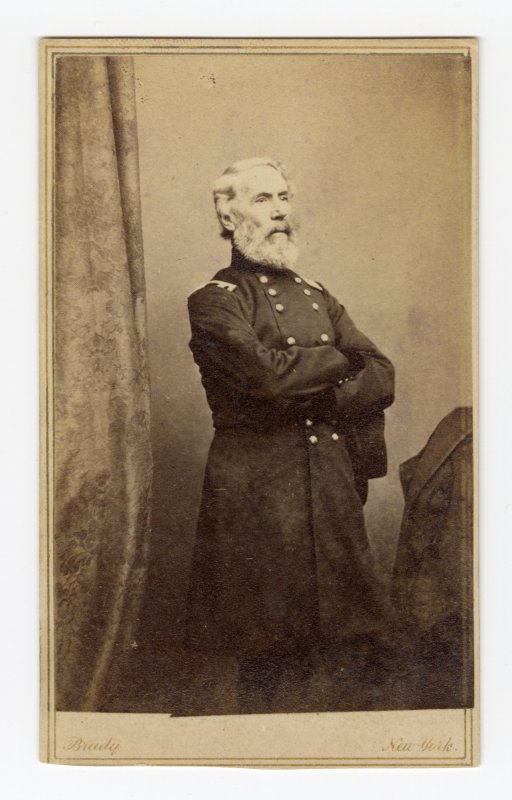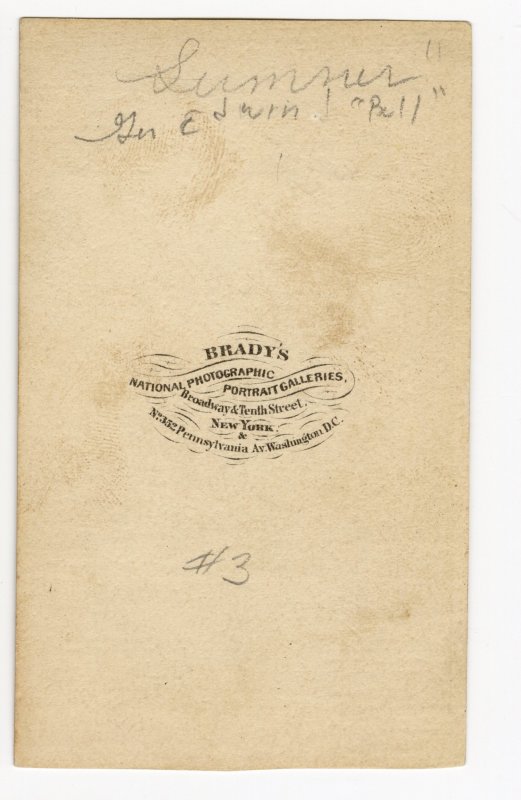General Edwin V. Sumner
Item CDV-10404
Price: $165.00
Description
Sumner, Edwin V., major-general, was born in Boston,Mass., in 1796. He was educated at the Milton academy in
Boston, was appointed second lieutenant in the 2nd U. S.
infantry in March, 1819, and served in the Black Hawk war.
When the 2nd regiment of dragoons was raised by Gen. Jackson he
was commissioned captain, was for many years employed in
service on the Indian frontier and subsequently commanded the
school of cavalry practice at Carlisle, Pa. He was promoted
major in 1846 and in April, 1847, led the famous cavalry charge
at Cerro Gordo, where he was wounded and obtained the brevet of
lieutenant-colonel. At Contreras and Churubusco he won further
honors and at the battle of Molino del Rey commanded the entire
cavalry, holding in check 5,000 Mexican lancers. For his
gallant conduct he received the brevet of colonel, and in July,
1848, was commissioned lieutenant-colonel of the 1st dragoons.
At the close of the war he was placed in command of the
Department of New Mexico. In 1855 he was promoted to the
colonelcy of the 1st cavalry, and the following year was in
command at Fort Leavenworth, Kan. In July of 1857 he led a
successful expedition against the Cheyenne Indians, and in 1858
was appointed commander of the Department of the West. In
March, 1861, he was appointed brigadier-general in the regular
army in place of Gen. Twiggs, and in March, 1862, was appointed
commander of the 1st army corps, Army of the Potomac. At the
siege of Yorktown he commanded the left wing and was engaged in
all the battles of the Chickahominy, during which he was twice
wounded. For his services before Richmond he was made major-
general of volunteers and brevet major-general in the regular
army. Upon the reorganization of the army Gen. Sumner was
assigned to the 2nd corps and in the battle of Antietam was
wounded. Subsequently he was placed in command of the right
grand division, Army of the Potomac, but upon the appointment
of Gen. Hooker as chief of that army he asked to be relieved,
and after a few weeks was ordered to the command of the Army of
the Frontier. Upon the way thither he was taken sick, and died
after a short illness at Syracuse, N. Y., March 21, 1863.
Source: The Union Army, vol. 8


